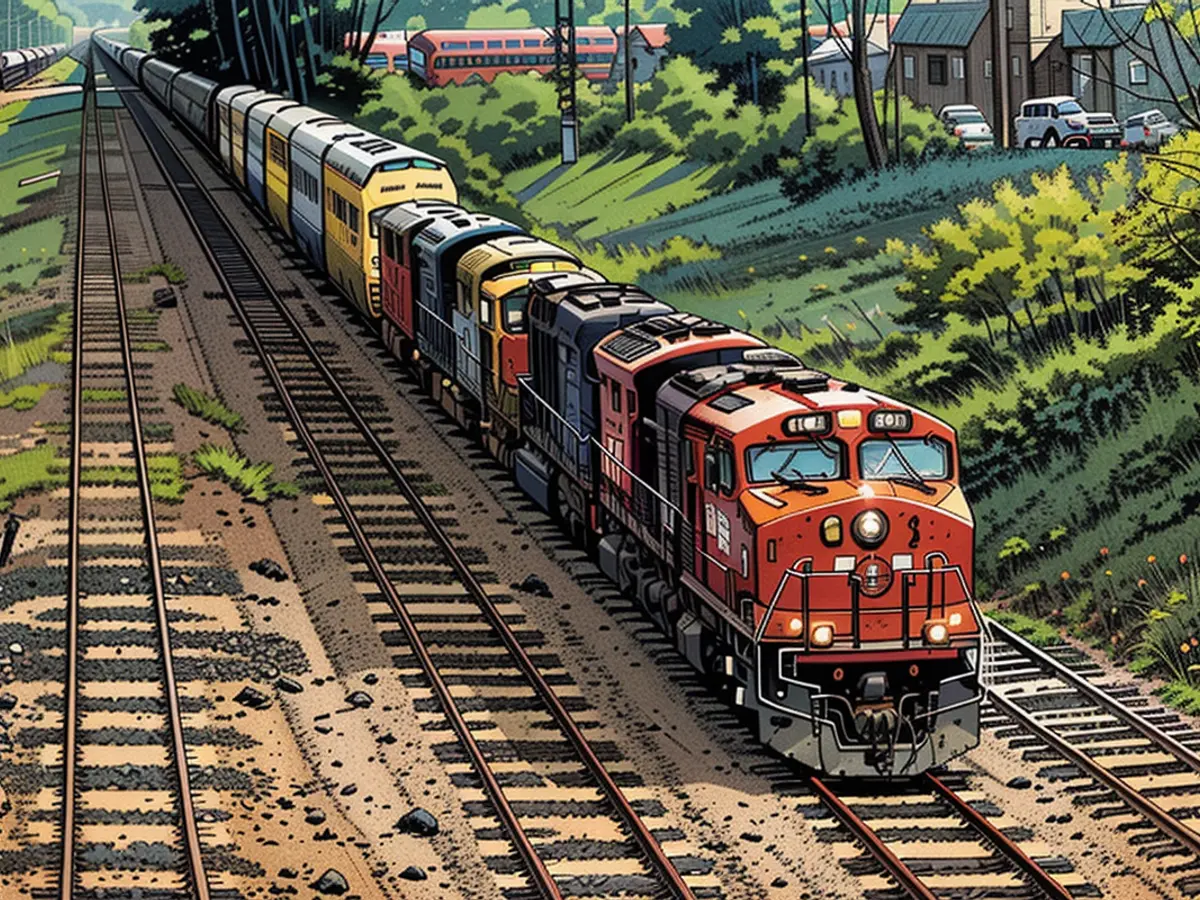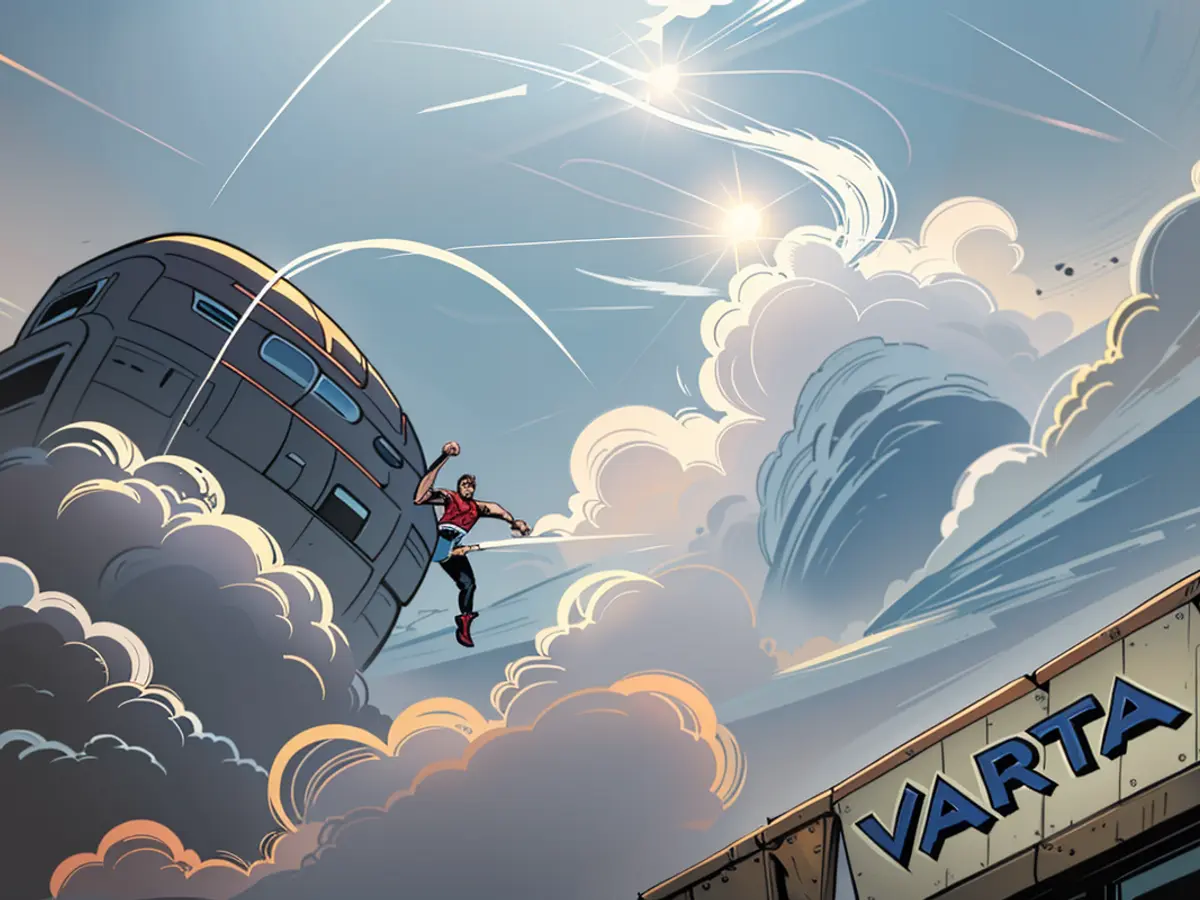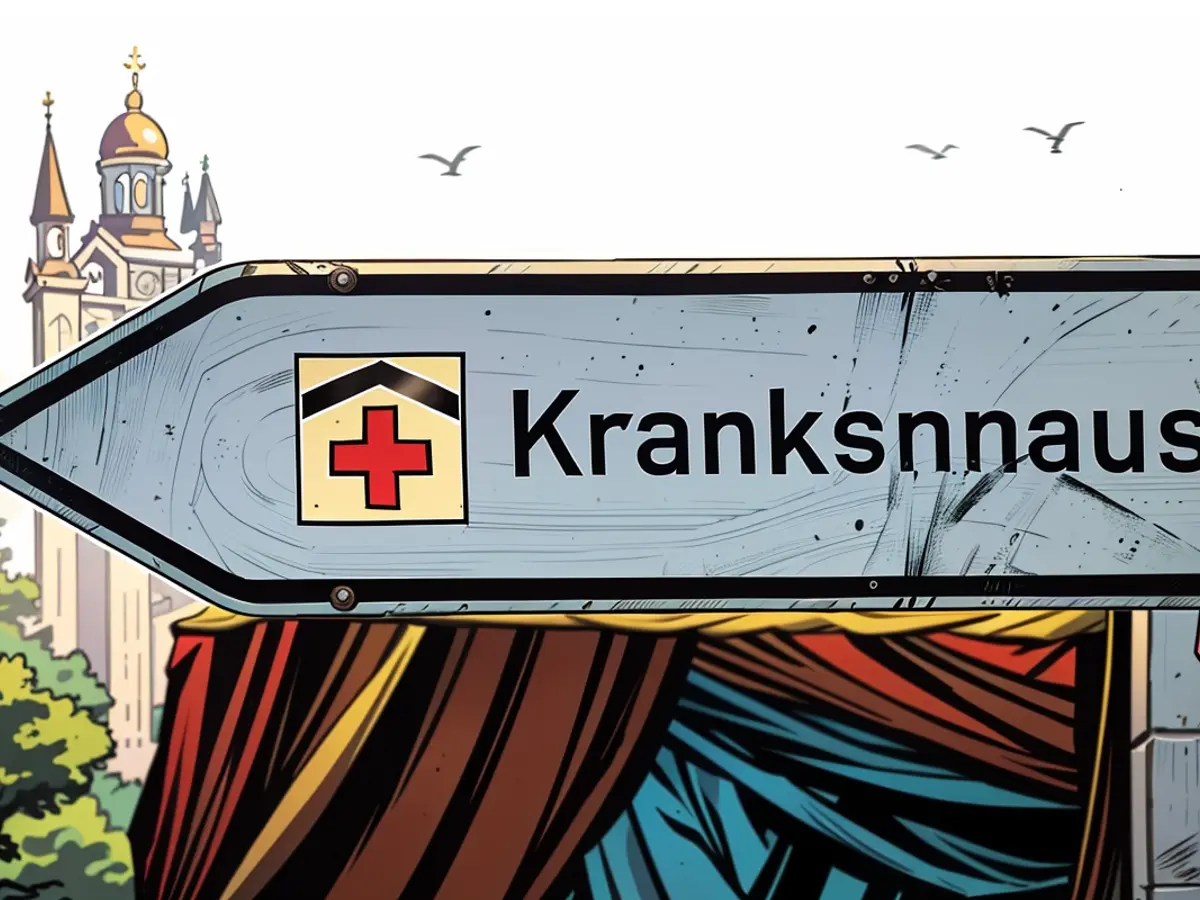Impending Large-Scale Canadian Rail Work Stoppage May Cause Financial Repercussions Extending to the U.S.
With time running out for last-minute deals, Canadian National Railway and Canadian Pacific Kansas City are planning to bar their workers from their jobs starting from early Thursday morning.
This is the first instance in the country's history where both railroad companies are facing a joint work stoppage, as they typically negotiate their labor agreements in separate years.
This lockout could pose significant challenges to the transportation of commodities such as food grains, beans, potash, coal, and timber, which constitute a considerable portion of Canada's exports. It could also impact shipments of petroleum products, chemicals, and cars.
The potential economic loss from this lockout could exceed billions of dollars. Moreover, it could disrupt rail trade not just within Canada but across the entire North American continent.
"Unless there is an immediate and definitive resolution to the labor dispute, CN will be compelled to continue with its phased and progressive shutdown of its network, ultimately leading to a lockout," CN announced in a statement.
The weekend negotiations between the parties yielded no substantial progress, with the two sides still vastly apart.
The Teamsters union alleges that CN is pushing for a mandatory relocation clause, requiring workers to relocate across Canada for extended periods to fill labor gaps.
CN, on the other hand, asserts that it has put forth four wage offers, rest considerations, and labor availability plans while adhering to the government's regulations governing duty and rest periods.
The disagreement with CPKC revolves around safety concerns. The union argues that CPKC wants to eliminate all safety-critical rest provisions, forcing crews to work longer hours, thus increasing the likelihood of accidents.
CPKC, however, claims that its offer leaves all work rules unchanged, complies with the new regulations regarding rest, and in no way jeopardizes safety.
The Teamsters, which represents yard workers, rail traffic controllers, locomotive engineers, and conductors, earlier issued a 72-hour strike notice to CPKC before the company announced its lockout measures. It also advised its members to treat CN's lockout notice as if they were on strike.
"We are issuing strike notice to safeguard the rights and safety of our members," said Paul Boucher, president of the Teamsters Canada Rail Conference, in the statement.
Both CN and CPKC have confirmed that their networks outside of Canada will continue to operate, although there could be subsequent effects. The networks of these two Canadian rail operators are interconnected with several significant U.S. rail and shipping hubs such as Chicago, New Orleans, Minneapolis, and Memphis. CPKC's network also extends south, linking with ports on both the East and West coasts of Mexico.
So far, the federal Liberal government has refused to meddle, urging the companies and the unions to resolve their disagreements through negotiations.
The joint work stoppage at Canadian National Railway and Canadian Pacific Kansas City could negatively impact various businesses that rely on rail transportation for their operations. For instance, food processing companies might struggle to send their products to international markets.
The potential economic losses and disruptions from this lockout could have ripple effects on numerous businesses, not just in Canada but also across the North American continent.








